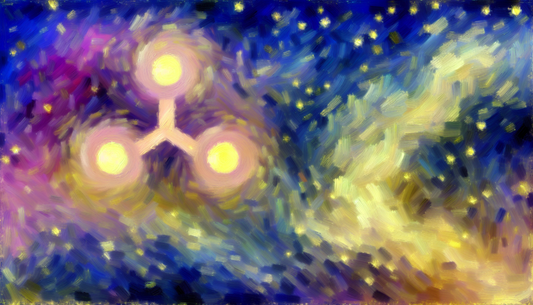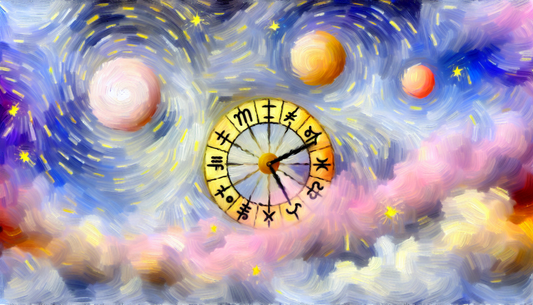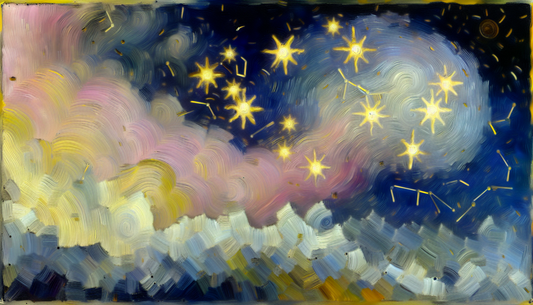Astrology has been a guiding force in human history, weaving through the tapestry of various cultures and civilizations. Its evolution reflects humanity's quest for understanding the cosmos and ourselves. Let's explore the significant milestones in the journey of astrology.
The Roots of Astrology
Astrology's origins can be traced back to ancient Mesopotamia around 3000 BCE. The Babylonians were the pioneers who first began charting the movements of celestial bodies, motivated by a desire to predict agricultural cycles. Using their observations of planetary movements, they developed an early form of horoscopic astrology, which laid the groundwork for future astrological practices.

Greek Influence: Birth of Hellenistic Astrology
As cultures merged and evolved, the Greeks adopted Babylonian astrology around the 4th century BCE. Figures like Ptolemy synthesized knowledge from various traditions, culminating in the influential work known as the Tetrabiblos. This laid the foundation for Hellenistic astrology, intertwining mathematics, philosophy, and cosmology. The Greeks emphasized the importance of individual destinies dictated by planetary alignments, shaping how astrology was perceived and practiced for centuries.
The Roman Era: Astrology in Daily Life
Astrology continued to flourish during the Roman Empire, where it became a common aspect of daily life. Roman emperors employed astrologers to help make critical political and military decisions. The allure of astrology fascinated the masses, leading to the publication of horoscopes in public spaces. Despite periods of persecution, astrology maintained its significance, demonstrating humanity's persistent curiosity about the stars.

The Middle Ages: A Period of Transition
With the dawn of the Middle Ages, astrology experienced a decline due to the rise of Christianity, which viewed it as heretical. However, scholars in the Islamic Golden Age preserved and expanded upon ancient astrological texts. Figures like Avicenna and Al-Khayyam made significant contributions, reintroducing astrology to Europe during the Renaissance. This period marked a rediscovery of classical learning and the integration of astrology with emerging scientific thought.
The Renaissance: A Rebirth of Knowledge
The Renaissance sparked an astrological revival, as intellectuals sought to reconcile astrology with science. Notable figures such as Johannes Kepler and Tycho Brahe used improved astronomical tools to enhance astrological predictions. The publication of horoscopes became sophisticated, with charts reflecting both scientific observations and mystical beliefs. This blend of art and science played a pivotal role in shaping modern astrology.
The Age of Enlightenment: Rationalism and Rejection
The Age of Enlightenment brought a wave of rationalism and skepticism, challenging the validity of astrology. Thinkers like René Descartes and Isaac Newton advocated for empirical science, casting astrology in doubt. As society leaned towards reason and logic, astrology was often relegated to the realms of superstition and pseudoscience. However, this period also saw astrological systems adapting to fit a more scientific framework, leading to a re-evaluation of its principles.

The Modern Era: New Age and Popularity Resurgence
In the 20th century, astrology saw a resurgence. The New Age movement embraced astrology, emphasizing self-discovery and personal insight. Birth chart readings became popular, reflecting the zeitgeist of individualism and holistic approaches to life. The accessibility of astrology through magazines, books, and online platforms allowed it to reach a broad audience, revitalizing interest in astrological practices worldwide.
Contemporary Astrology: The Digital Age
Today, astrology has found a new home in the digital realm. With the rise of social media, apps, and websites, astrology has become more accessible than ever. Influencers and astrologers have created communities that foster discussion and engagement around astrological phenomena. While modern astrology still leans heavily on traditional principles, it incorporates psychological insights, making it relevant to contemporary spiritual exploration.
Conclusion: Astrology’s Enduring Legacy
From its ancient roots to present-day practices, astrology has proven to be a resilient and adaptable system. It reflects the ongoing human pursuit of understanding our place in the universe. As we move forward, astrology continues to weave itself into the fabric of everyday life, guiding us through uncertainty and offering fascinating insights into our personal journeys. Its evolution is a testament to humanity's desire to connect with the cosmos, making it a timeless subject of intrigue and study.















